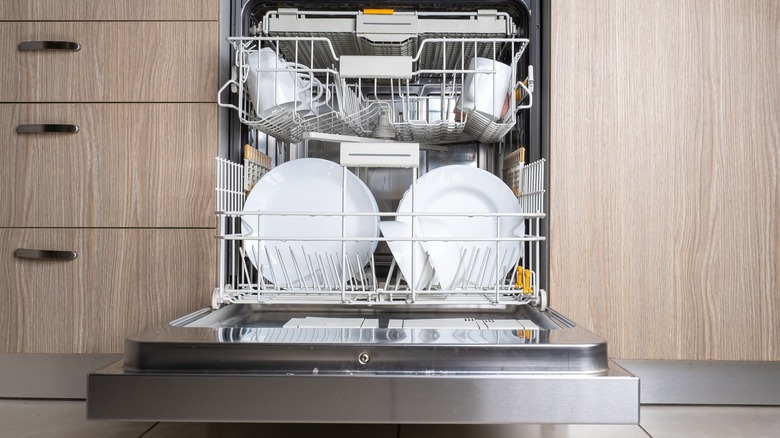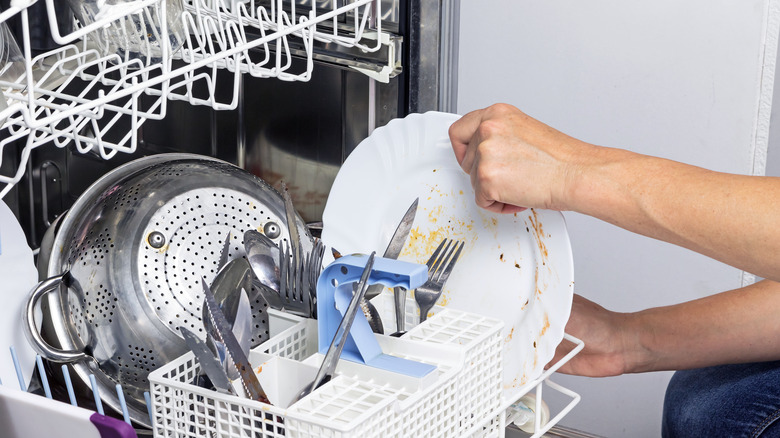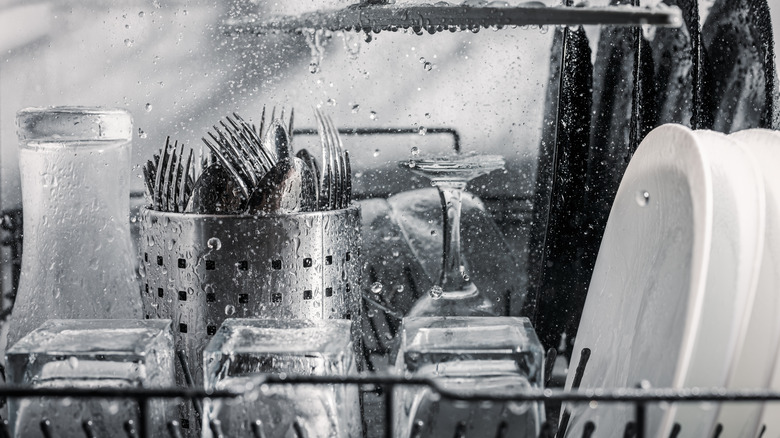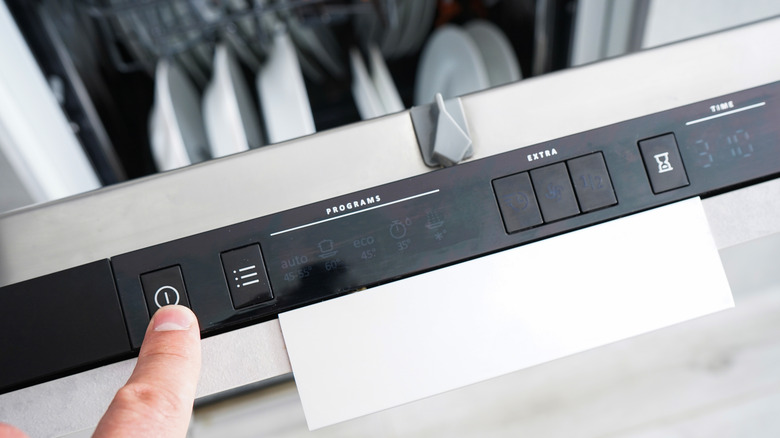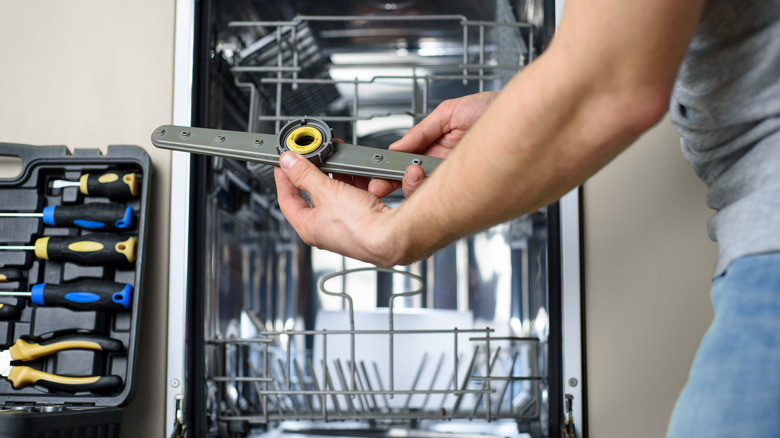10 Signs Your Dishwasher Is Too Old
Making sure that your home stays clean isn't always easy and can be time-consuming. Of course, there are various ways to make the necessary tasks easier. For instance, you can set up a robotic vacuum, move your washing machine to a more convenient location, or get yourself a dishwasher that's both effective and efficient. If you already have a dishwasher, then you know how helpful it can be and probably wouldn't want to go back to washing dishes by hand — that's why it's important to know when it needs replacing.
When it comes to how long dishwashers last, you can expect them to keep working for around 10 years, according to Clark. However, some may even last for up to 15 years. A variety of factors will play into the longevity of your dishwasher, such as the brand that you opt for in the first place. Beyond that, your dishwasher should last longer if you use it properly, keep it clean, and don't use it as often, which might mean waiting until you have a full load before you turn it on. At the same time, appliances don't last forever, and you should know what signs to look for that indicate it's time for a replacement.
There's food left behind
The entire point of having a dishwasher is to ensure that your plates, cups, and cutlery end up clean after being used. That's why you may need to get rid of your dishwasher if you're putting it through a full cycle and are still finding food on dishes when it's done.
There's soap on the dishes
In the same way that food can be left behind in an old appliance, malfunctioning dishwashers may not totally rinse the soap off of your dishes. Whether you find bubbly suds or a dried soapy film, you'll know that there's an issue that you might not be able to fix.
It's not drying your dishes
After your dishwasher does its job by cleaning what's inside, it's meant to use hot air to dry everything off during its cycle. If that doesn't happen, your dishes can end up streaky and with spots. As your dishwasher gets older, it may lose its drying power and leave your dishes soaking wet.
It's using too much water
Dishwashers obviously need a certain amount of water to get the job done properly. However, newer appliances are often made to use fewer resources. If your older dishwasher is using too much water, then it might also be costing you more money every time the water bill shows up.
It's using too much energy
In the same way that newer dishwashers can conserve water, they can also be more energy-efficient. Not only do older models tend to rely on more power due to their design, but dishwashers can also use more energy as they age and need an extra boost every time you turn them on.
There's a weird smell
There are plenty of reasons why your dishwasher might start to give off an unpleasant smell. While you may be able to deal with the problem by running your dishwasher without anything in it a few times, you also want to make sure the smell isn't being caused by an unhealthy issue.
You've spotted mold
If you've spotted a little mold in your dishwasher, then you might be able to get rid of it with some targeted cleaning. However, if the problem is too widespread throughout the machine or persistent, then it might be time to get rid of your dishwasher so that it doesn't pass mold onto your dishes.
You can see rust
While dishwashers are meant to resist certain problems like rust, they can still succumb to issues over time when the protective measures and surfaces have worn down or worn off. If you can see rust on or in your dishwasher, then it may be a sign that the appliance's structure is breaking down.
The settings aren't working
Your dishwasher likely offers you different options when it comes to cleaning cycles such as using less water for a smaller load and using a more vigorous spray when you need to tackle pots and pans. If these settings are broken, your dishwasher definitely won't be as useful as it once was.
Parts and pieces are broken
Does the door on your dishwasher not open properly anymore? Perhaps the rack refuses to roll, the cutlery holder won't come out, or the spinner is cracked. While some broken parts can easily be repaired by yourself or a professional, other busted pieces aren't worth spending the time or money to fix.
